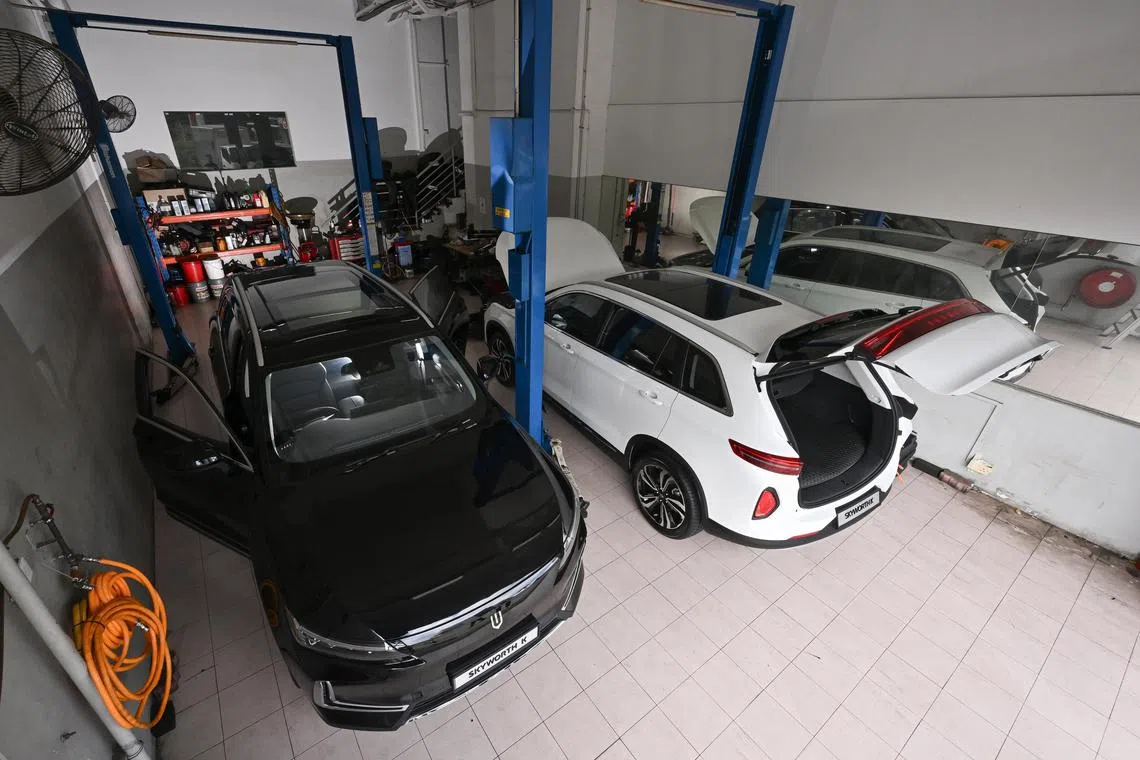Torque Shop: EV maintenance differs from that of a regular car
Sign up now: Get ST's newsletters delivered to your inbox

Many EV components cannot be serviced but some, like the brakes and tyres, do need to be looked at periodically.
ST PHOTO: LIM YAOHUI
Is there a service interval for electric vehicles (EVs)? Is the work required complex and time-consuming?
Electric vehicles do have recommended service intervals, but the routine tasks are unlike those for conventional internal combustion engine vehicles.
For a start, EVs do not require the regular draining and replenishing of engine oil. Neither do they need spark plugs, oil and fuel filters, or timing belts.
The electric motor is sealed for life and does not spin in an oil bath. Electric motors have bearings, but these are also sealed and do not require any periodic lubrication or replacement.
The rest of the powertrain is dominated by electrical and electronic assemblies, which are non-serviceable. Electronic diagnostic equipment is used to check the status and condition of the components.
Any parts that need to be replaced will be due only to a malfunction that is detected by the diagnostic computer. In other words, there are no wear-and-tear parts in the electrical or electronic network.
The drivetrain, too, is relatively simple as there is no transmission unit.
In most EVs, there is a fixed single-speed reduction gearset with no selector mechanisms. The gearset and differentials tend to be sealed with lubricants. No oil change is needed.
Service intervals for EVs are nonetheless necessary to ensure the rest of the mechanical components receive periodic maintenance for safe and reliable service life. These include the braking system, suspension, drive-shafts, steering and tyres.
Recommended service intervals for EVs vary depending on the brand, ranging from 15,000km to 30,000km.
In the early years of a car, turnaround is likely to be short since most of the work will be limited to a visual and diagnostic inspection.
The high-voltage battery is not a component that requires frequent replacement. In fact, most EV makers now warrant the battery for between eight and 10 years, and up to 100,000km.
Some, such as South Korean maker Hyundai and Chinese brand Xpeng, have warranty coverage that stretches to 160,000km.


